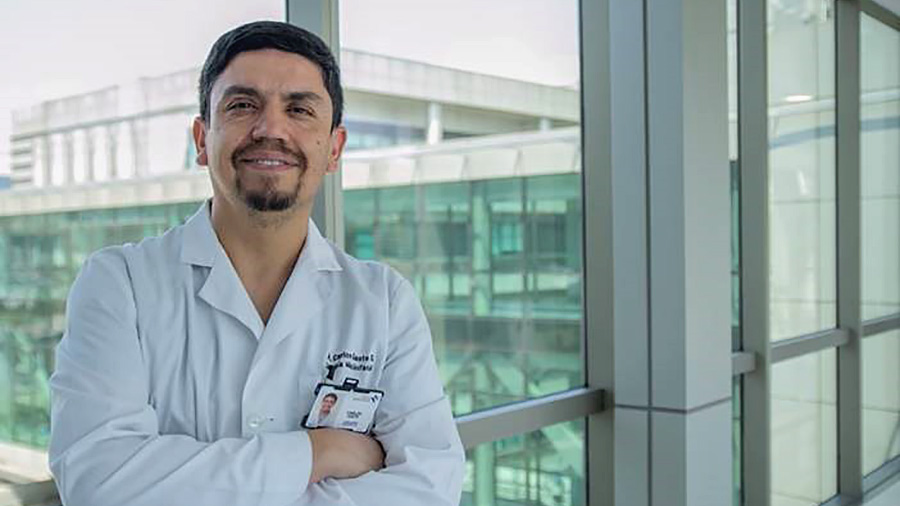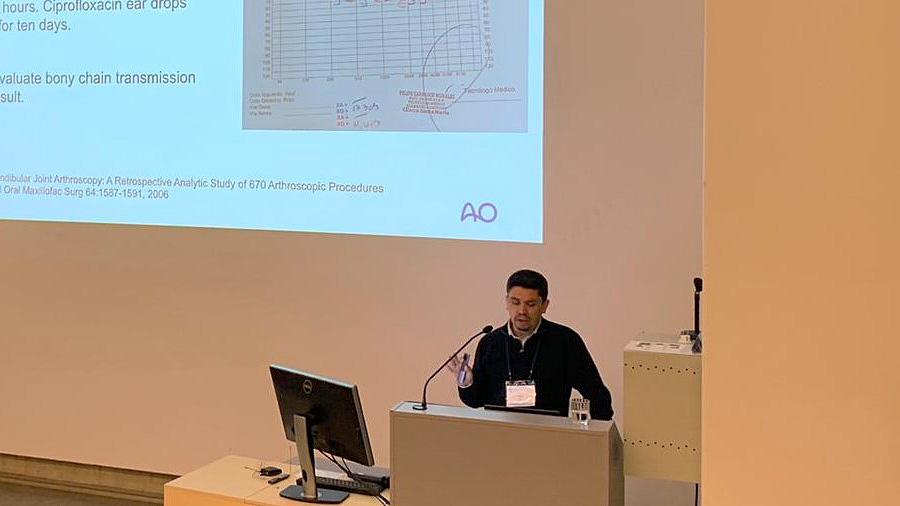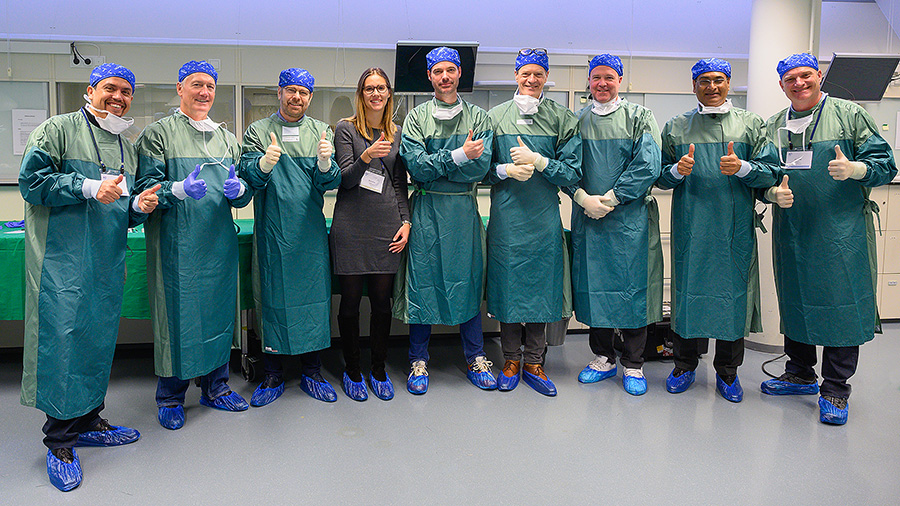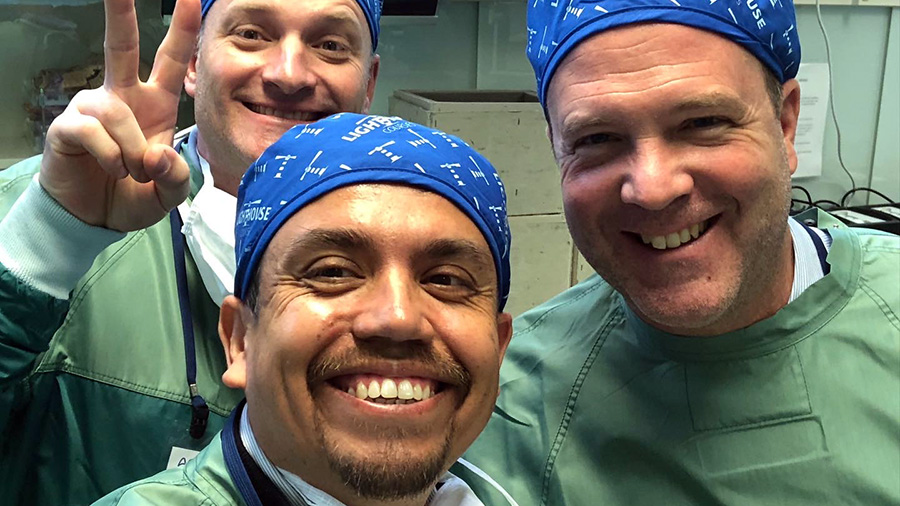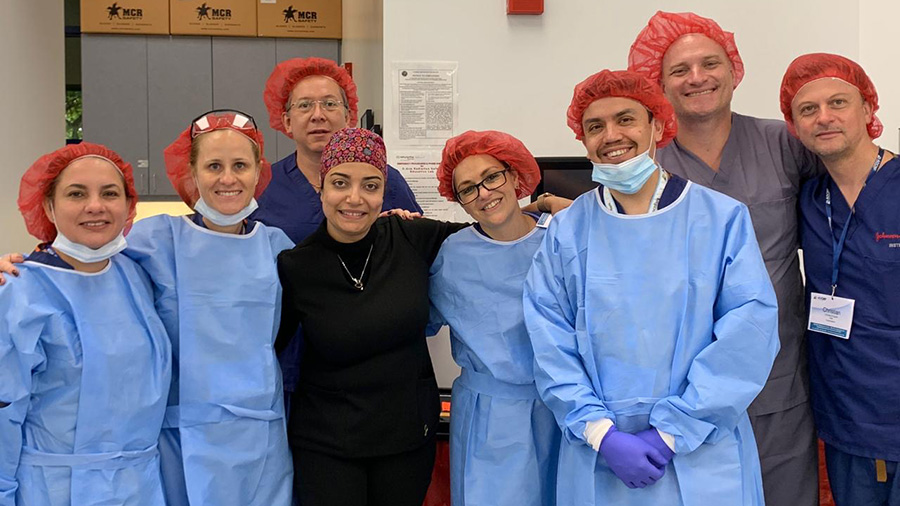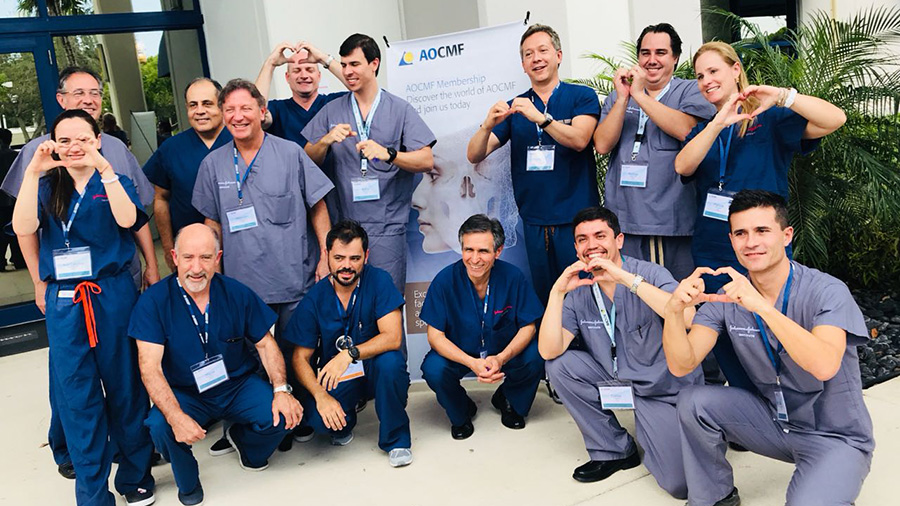Getting to know: Carlos Gaete
An interview with the newly elected adjunct member of the AO CMF Community Development Commission (CDC)
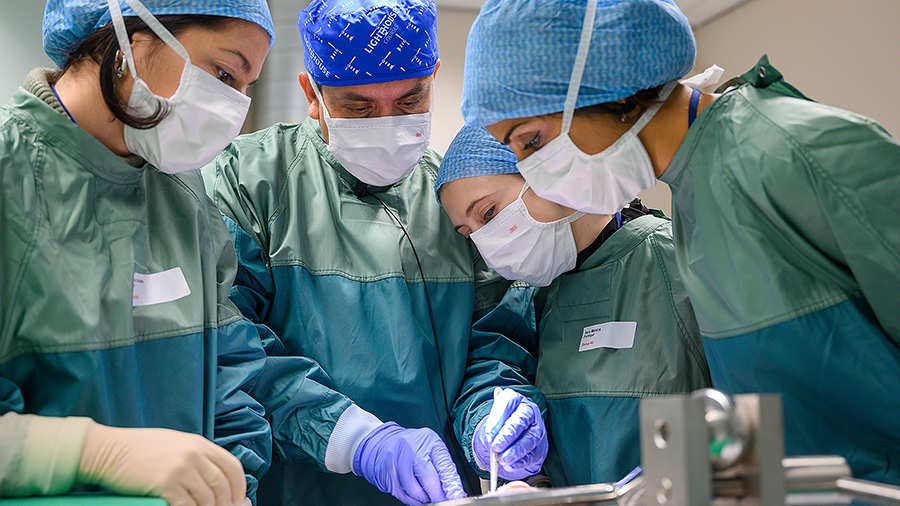
As an adjunct member of the AO CMF Community Development Commission (CDC), Carlos Gaete provides valuable insights from Latin America in support of AO CMF's online presence, study clubs, the AO CMF Facebook case discussion group, and member engagement. In this article, he discusses social media’s role in community development, the particular needs of surgeons in Latin America, and the experiences that have inspired him as a surgeon.
Where are you now? Where do you practice and/or teach?
I’m living in Santiago, the capital city of Chile, and working in two big hospitals here. The first one is Hospital del Trabajador, a trauma center and an AO CMF fellowship center, where I’m a member of a multidisciplinary team dedicated to treating serious facial trauma situations and their sequelae. The other one is Clínica Santa María, a private hospital where my main focus is temporomandibular joint (TMJ) surgery—especially TMJ arthroscopy—as well as orthognathic surgery.
At the same time, I’m very involved in various AO CMF educational activities, a member of community development team for my region, and I teach in two different oral and maxillofacial surgery (OMFS) graduate programs.
What do these roles mean to you?
I feel comfortable as a clinician and full of passion working in the specifics areas where I’m involved. At the same time, it means for me a high commitment to my patients and a deep satisfaction when I’m helping to improve their quality of life to some extent. On the other side, teaching is always satisfying because it allows me to stay up to date and in contact with new knowledge in my area, and to help students and residents progress and reach their own goals.
In relation to AO CMF activities, I always enjoy educational events, especially when I can share and learn from faculty colleagues and students. My new position on the AO CMF CDC has been a challenge and completely new learning opportunity for me; I feel lucky to be in a position to help other members in Latin America to have access to more and better educational opportunities and to be an integral part of our global community.
“I feel lucky to be in a position to help other members in Latin America to have access to more and better educational opportunities and to be an integral part of our global community.”
What is your educational background?
I graduated in 1999, finished my residency program in OMFS, and at the same time the master’s degree in 2006. I became AO CMF faculty in 2009, and since then I’ve been involved with AO CMF educational activities in Chile. In 2011, I became regional faculty in Latin America, and just this year I had my two first experiences as international faculty. Additionally, I’ve had the opportunity to be involved as a student in different educational experiences and clinical rotations of great value in Europe, the United States, and Brazil; these have helped define my career as a surgeon.
What inspired you to become a surgeon?
I was inspired by the tremendous possibility to produce a physical or anatomical change in people that helps improve their lives. I consider this a privilege because you can feel a positive change in your patients and, most of the time, they make you feel great satisfaction and are deeply grateful for this help.
Why craniomaxillofacial surgery as your specialty?
Because as a dentist I have a solid knowledge of function and anatomy of the region. Craniomaxillofacial surgery contributes to improving the function of the area and related systems while at the same time always respecting harmony and maintaining or improving aesthetics for our patients.
Tell us about your role as an adjunct member of the AO CMF Community Development member representing Latin America.
As the Latin America representative to the CDC, I’m part of a team that is responsible for coordinating and managing all online communication, which is particularly important during this time of pandemic. We also provide direct support for all AO CMF online activities in our region, including educational events such as expert case discussions, webinars, etc, and Facebook case discussions. We implement new community development initiatives, like study clubs and other educational activities. Another important role is developing strategies to stimulate membership in our region: making high-level surgical education available to a greater number of surgeons and maintaining AO CMF’s position as the leading membership organization in the field of craniomaxillofacial surgery.
What intrigued you about being an adjunct member of the AO CMF Community Development Commission?
I’m convinced we have a great opportunity to use technology—especially social media—to help to reduce Latin America’s deep disparities in access to knowledge arising from various inequities: gender, social conditions, income level, and ethnic origins. Social media has tremendous potential to reach many surgeons in different conditions, to deliver knowledge, to inspire better practices, to drive excellence in surgeons’ daily performance, and to share evidence of good quality.
I have the impression that the strong work of initiatives like community development has been largely responsible for the new image and the great impulse for a change that the AO and especially AO CMF have shown in the last few years; this puts us in a privileged position as a reference in education and research in our specialty. So, this also presents the challenge for us to always maintain a high standard in our CDC work and activities. For me, it is exciting to be part of community development; I feel that together with my team and other CDC members, we are helping to keep the heart and soul of AO CMF alive both today and in the future.
What is your vision for attracting members from Latin America?
As surgeons today, we must be constantly up to date and AO CMF offers us to excellent surgical education and the opportunity to be part of a global community, as well as activities specifically designed and taking into account the needs of members in Latin America. Online activities are a way to link faculty and students. Another interesting initiative is the development of the myAO app, which enables interactive discussions with expert members, guided reading, and participation in specific interest groups on certain topics. Users with a valid AO CMF membership can also access a full database of scientific journals.
Being part of AO CMF means always having access to a worldwide network, high-quality education, and diverse opportunities to update your knowledge—by reading, being part of a course or a discussion, or even by undertaking a fellowship in one of our prestigious surgical centers around the world.
When it comes to member engagement in Latin America, what is distinctive? What do surgeons in Latin America want or need from AO CMF membership?
For surgeons in our region, I think it is important to feel that AO CMF will contribute to their careers by providing a high-level education, and that the AO will make a big difference by driving development of better procedures and better patient outcomes. At the same time, I believe that it is essential for surgeons in our region to have an emotional link that makes them feel part of a community—this certainly is a hallmark of the AO.
What's the best professional advice that anyone ever gave to you?
Once a colleague who has more experience than me, and whom I respect a lot, told me to always have a special consideration for any surgical complication of a patient. He advised me to always be humble, to be present and available to my patients, and to understand that complications and even my own surgical mistakes would be my best experience to help me improve and be a better surgeon for my patients.
What books are on your nightstand?
One is a collection of poems by Chilean antipoet Nicanor Parra, who wrote fantastic and amazing poetry that breaks the classical rules and uses a lot of sarcasm and irreverent prose illustrating routine and philosophical problems of human beings. I’m beginning to read Historia secreta mapuche by Chilean author Pedro Cayuqueo, who revisits the history of Chile’s indigenous Mapuche people and writes from their point of view. The Mapuche are a warrior people who have historically rebelled against Chilean authorities and, controversially, have sometimes been linked to violent groups in the south of Chile in the attempt to vindicate their territorial claims.
Coffee or tea?
I love tasting different kinds of tea, especially strong teas, but I also love to drink coffee in the cold of winter—particularly Brazilian or Colombian coffee are my favorites.
What music is currently at the top of your playlist?
Pearl Jam always, but also Dave Mathews Band, The Black Keys, Alice in Chains, Jack Johnson, Metallica, Pink Floyd and Led Zeppelin
What do you do to relax?
I love to travel with my kids, to walk in nature—especially in the forest of southern Chile—and to cook for the people I love, like family and friends.
Tell us about the most important experience in your life as a surgeon and how it affected you personally/professionally.
When I was a young surgeon with only two or three years of experience, I had the opportunity to operate on a 14-year-old girl with a serious mandibular asymmetry. The main reason for performing this precocious procedure rather than waiting for the patient’s mandibular growth to be complete was that her facial appearance causing depression and compromising her family environment.
After the surgery the patient had a good result, but I personally was very impressed by how she started to feel self-confident and happy again. She seemed like another person and, luckily, she was able to stop taking antidepressants. Her family was happy, too. Seeing this change made me understand—as never before—the tremendous possibility we have as surgeons to positively influence people's lives. From that moment on, my vision of what we do was different; this case inspired total commitment to my patients.
Do you have a mantra or favorite saying?
“What is essential is invisible to the eyes,” from The little Prince by Antoine de Saint-Exupéry, is important to me because it reveals that most of the time, we do not see the meaning of what is really important; we live in pursuit of goals that are often superficial. The current COVID-19 pandemic has reminded me that I need very few things to be happy, mainly health and the well-being of my loved ones. I think these are the only essential things, as the Little Prince said.
In just a few words, what does AO CMF mean to you?
For me, AO CMF has meant access to excellence in education and it has allowed me to be part of many innovative educational experiences that have taught me to work better as a part of a team. It has also allowed me to be part of a global community that is like a second family to me. It continues to give me new development opportunities they have defined my career as a surgeon. Being part of the AO has given me the opportunity to meet amazing people, make great friends around the world—many of whom are like brothers to me, the chance to visit fantastic places and have great experiences delivering education. AO CMF is an essential part of my professional and personal life today.

